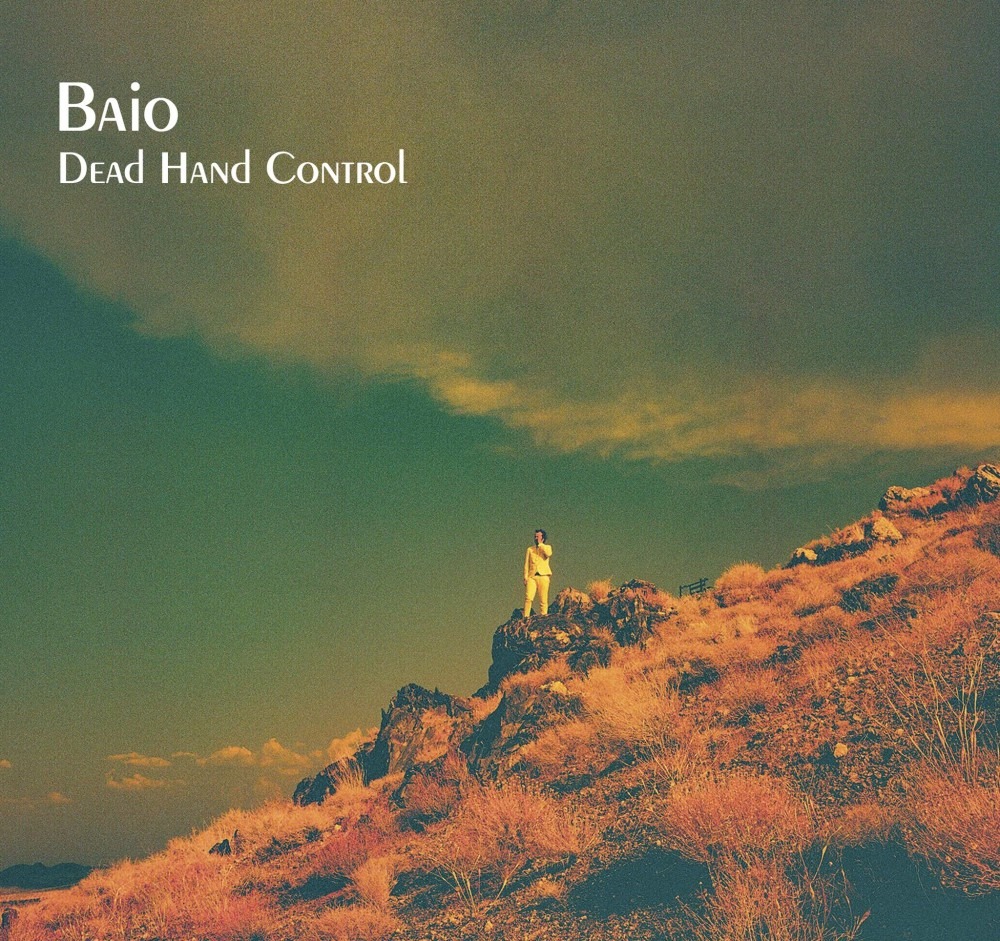The Vampire Weekend bassist branches out on his most expansive album yet, but falls short of any meaningful impact.
Now on his third album under the Baio moniker, Chris Baio has established a fully fledged solo career separate from the glare and attention of Vampire Weekend. His latest offering, Dead Hand Control, is his most experimental collection yet. The New York native moves freely between genres as he explores the importance that selflessness and affection play in a harsh modern world. “The starting point of the record was extremely dark,” Baio admits, “but I wanted to make something that was ultimately romantic and hopeful.”
But for all it’s goodwill, Dead Hand Control, leaves you feeling somewhat underwhelmed as you come to the end of the 42 minute run time. Perhaps the most dominating issue on this LP is that it seems to fall short of what it’s clear intention is. Baio has nailed his colours to the mast in terms of what he is attempting to do with this album; bringing disparate and disenchanted individuals together with tales of selflessness and an eclectic influence of genres. But in his attempts to occupy a variety of stylistic spaces – which he does with deftness and subtly – he has seemingly forgotten to put as much care into the lyrics that underpin them.
Take the techno infused ‘Dead Hand,’ in which Baio takes great care to show his understanding of the genre as well as his capability to execute its more industrial side. But this only comes to the fore in the second half of what is a nine-minute song. The first five minutes are instead a tongue-in-cheek love song to a supposed Cold War era Soviet missile system named Dead Hand, which the album is itself named after. As oblique a reference as this is, it does have the potential to stand up to scrutiny when you consider the unknown quantities of upheaval the modern world throws at us on a near daily basis. But with lyrics like, “I’ve got a brand new baby and she weighs a tonne / She’s got more firepower than a million guns”, it’s difficult not to argue that the metaphor is ham-handed at best.
And this generally is the feeling for a lot of the other tracks on the album. Carefully arranged and played with the utmost respect for their cultural origins, but without much lyrical clout to hold the track together.
Stand out points do exist on ‘Dead Hand Control’, however. ‘Never Never Never’ elegantly plays around with an interesting surf rock interpretation, reinforced by a pretty nifty organ line in the background, while ‘What Do You Say When I’m Not There’ has all the soaring euphoric prog-rock qualities of ELO. The album’s lead single B-side is only let down, however, by its similarity to the melody of Baio’s 2017 track, ‘Sensitive Guy’.
Breaking down genre lines is no easy task, but when done well you often end up with albums that last years if not decades in the public consciousness. But in order for an album to successfully go beyond singular classifications, there has to be a trade off between the experimentation of the new direction and the tried and tested methods of what came before. Unfortunately for Baio, he has missed the mark on this point. For all the thought provoking and leftfield melodic ideas the Vampire Weekend bassist puts on show in ‘Dead Hand Control’, he is sadly let down by lyricisms that are weak at best and quite cringe-worthy at worst.
What he has set out to achieve is not to be written off, however. The act of combining musical stylings that range from African tribal beats through to Talking Heads inspired synth pop, with lyrics that seek to overcome a divisive social culture is an intention nothing short of universal. It’s just in the execution where he falls short, leaving little to the imagination of the listeners on an album that strikes a rather predictable tone.
5/10
Words: Ben Miles
– – –
– – –

